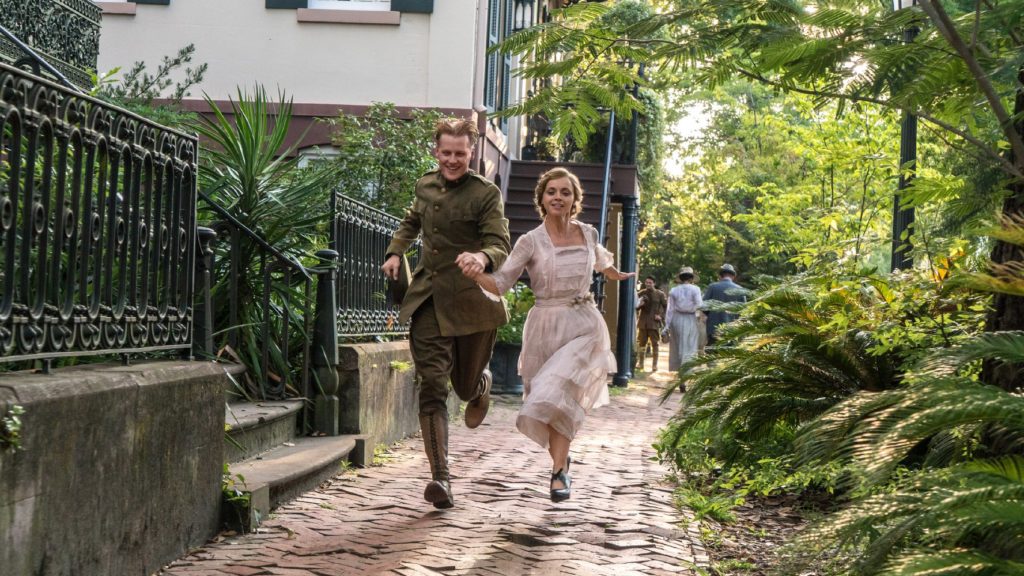
by Haley Mitchell, managing editor
“I love her, and that’s the beginning and end of everything.”
The it couple of the twenties has just become the stars of their own Amazon Prime period drama—Z: The Beginning of Everything pulled me in with promises of saucy Fitzgerald history and delivered that and much more tenfold.
Anyone can look up F. Scott (David Hoflin) and Zelda (Christina Ricci) Fitzgerald and see their story unfold in a series of manic highs and stressful lows, but it’s another thing entirely to watch it all unfold. Scott’s courtship of Zelda Sayre, daughter of an Alabaman judge, occupies the first couple of episodes and is portrayed in the fairly rapid succession of their meeting, whirlwind romance, Fitzgerald leaving for war, and his book getting published on his return. Zelda had given Scott a clause that if he became a published author they would wed, and within two days of receiving word of his publication she moves to New York. Zelda’s adaptation to city life is a smooth transition, and she soon becomes the talk of the town while maintaining most of her morals. Some, however, she abandons for Scott, though it becomes obvious that he holds himself in higher esteem than her happiness.
Scott’s portrayal is an interesting contrast to his often romanticized lens of a great American novelist, toeing the line between bad husbandry and villainy. His increasing dependency on Zelda’s diaries (to plagiarize from) and alcohol becomes a function of time as the series progresses, making it more difficult for Zelda to trust her husband as their marriage is strained by debt and jealousy. Tension and heartbreak is often palpable in the many moments of Scott’s rampant alcoholism. What’s harder to accept is that it’s accurate—that he had expected Zelda to live in his shadow, and yet it was her nature to rebel, and this made him drag her down even more.
The rest is literally history, as the follows Scott and Zelda’s lives fairly closely for most of the first season, but Hoflin and Ricci bring new life to long-dead characters. Ricci’s research into real-life Zelda has also made her portrayal even more compelling. Though each episode hits just under the thirty minute mark, series creators Dawn Prestwich and Nicole Yorkin are experts in pacing and manage to fill each installment with action and drama that stretch far past their time stamp.
Each episode is also incredibly thought provoking. It’s often hard to understand why Zelda even stays with Scott. Their love life, when functional, is quite touching (*snicker). In just about every other moment, however, it’s painful to watch Zelda try to make things work with a man who is often too immature to notice that his attempts at managing the marriage are counterproductive and selfish (being against Zelda getting an acting job, publishing her own book) when just about any other husband would want the best for her. Zelda’s behavior, though initially charmingly refreshing, is often borderline childish, however some of her more unclear motivations are revealed in the season finale and add a definite element of maturity to her character.
With talk of introducing Ernest Hemingway (who Zelda Fitzgerald infamously held in contempt) in the next season in addition to her finale reveal, it’s clear that Zelda’s tale is far from over. Historically, the Fitzgeralds’ next move is to France so Scott can work on his second novel, so if a second season does pull through, it will be interesting to see the couple’s dynamic away from the party people they associate with in the first season.

